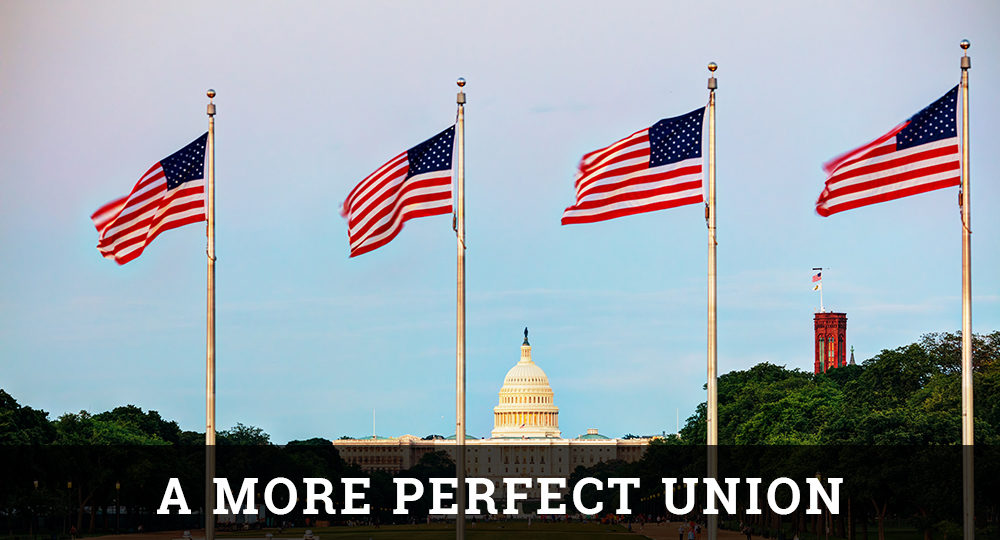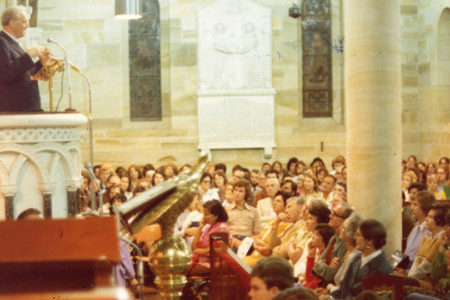A More Perfect Union Sep/Oct 2010
Now that the hotly contested Senate confirmation hearing of Elena Kagan is over and President Barack Obama’s nominee has become the 112th justice to serve on the U.S. Supreme Court, it is a good time to revisit an issue that dominated the public debate.
Several decades ago, those demanding respect for the First Amendment right of free speech were mostly liberals. Now it is conservatives and Christians who do so, and with good reason—particularly when we consider Justice Kagan’s views on the subject and the legal history of this issue.
From the time of America’s founding until the 1940s, Christians were unencumbered in their right to express themselves and publicly use the symbols of their faith. Then came the Supreme Court’s 1947 decision in Everson v. Board of Education. It said the First Amendment’s Establishment Clause was intended to erect a “wall of separation” between church and state.
Until then, if there was a separation, it was intended to protect the autonomy of religious groups from the overreaching arm of government. But after Everson, Bibles in public school, all forms of prayer at public school events, Christmas nativity scenes in public parks or buildings, the hanging of the Ten Commandments in courthouses, and nearly any public Christian symbol or practice became targeted in a seemingly endless parade of lawsuits by the American Civil Liberties Union, church/state radicals, and various atheist societies.
Then, in 1990, the Supreme Court decimated the other half of the First Amendment’s religious liberty guarantees: the Free Exercise Clause. That clause had been designed to protect the religious rights of individuals against government oppression. The Supreme Court gutted the concept of free exercise of religion, holding that those rights could only prevail as a matter of constitutional law when it could be proven the government had expressly targeted a form of religion for discriminatory treatment. In the absence of proof that the government was motivated by a bad intent, individual religious freedom would lose out in any conflict with government action or legislation. Soon those of us who were called on to defend people of faith found ourselves seeking shelter for our beleaguered clients in the Free Speech Clause of the First Amendment. It seemed to be a safe haven. Until now.
One of the most controversial aspects of Elena Kagan’s judicial philosophy was advanced in her short tenure as the Obama administration’s solicitor general. In a free-speech case she argued before the Supreme Court on behalf of the U.S. government, she advocated a brand new way of looking at, and limiting, the concept of free speech. In U.S. v. Stevens, she suggested the Court could begin limiting certain kinds of controversial expression by a “balancing of the value of the speech against its societal costs.” Translated: If certain controversial ideas are deemed low in social value, then such speech could be suppressed. For example, if the Christian ideas that (1) Jesus was no mere prophet but was the Son of God and (2) that Islam’s teaching on the subject is wrong were viewed as too costly to society because they offended Muslims or our international partners, then such speech could be suppressed. During oral argument, Chief Justice John G. Roberts, Jr. remarked from the bench that Ms. Kagan’s argument was “startling and dangerous.”
Underlying Justice Kagan’s argument is her telltale affinity for utilitarianism, the idea that individual rights must be subjugated when doing so maximizes, or appears to maximize, the greater social good. The modern version of that concept was originated by Jeremy Bentham (1748–1832) but popularized by John Stuart Mill (1806–1873). Among the philosophy’s many critical flaws is the fact that it can be used as a moral bludgeon to justify the most outrageous crimes against humanity, as well as violations of individual liberty.
Before her current professional elevation, Elena Kagan was the dean of the Harvard Law School. Harvard, along with many other law schools in the nation, has adopted (either implied or expressly) the utilitarian approach to law. These academics seem to be blind to the ethical and social problems inherent in this type of jurisprudential philosophy. And that is a problem for America.
Psalm 2:10–11 advises, “Now therefore, be wise, O kings; be instructed, you judges of the earth. Serve the Lᴏʀᴅ with fear, and rejoice with trembling.” The human act of legal interpretation ultimately involves a moral philosophy. And moral philosophy is ultimately bankrupt when it cuts its moorings from the great moral Lawgiver Himself. But all is not lost.
There is a movement to create and sustain Christian law schools in America—academic institutions that not only teach the “nuts and bolts” of legal practice, but also give the students an understanding of the Judeo-Christian foundations of Western law. We must pray for them to prosper. In their success will be America’s success, as our nation’s future hangs, quite literally, in the balance.







